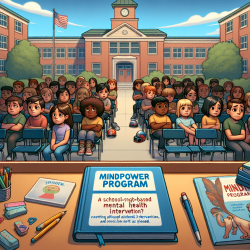Introduction
The global COVID-19 pandemic, coupled with natural disasters like Cyclone Harold, has exposed vulnerabilities in many sectors worldwide. A recent study titled "Politics of vulnerability: Impacts of COVID-19 and Cyclone Harold on Indo-Fijians engaged in small-scale fisheries" highlights the profound impacts on Indo-Fijian small-scale fisheries (SSF). This blog aims to provide insights for practitioners in the field of speech-language pathology to improve their skills by learning from these outcomes and encouraging further research.
Understanding Vulnerability
The study reveals that the main impact of COVID-19 on SSF actors was a reduction in fish sales, attributed to decreased local consumption and the loss of tourism markets. This reduction in sales led to significant economic challenges, with many SSF actors unable to meet their families' daily needs. The research highlights the importance of understanding vulnerability through an intersectional lens, which considers social relations of power and inequities.
Implications for Practitioners
Practitioners can draw valuable lessons from this study by recognizing the importance of data-driven decisions in addressing vulnerabilities. Here are some key takeaways:
- Intersectional Analysis: Understanding the diverse experiences of vulnerability among different groups can help tailor interventions that address specific needs.
- Community Engagement: Engaging with communities to understand their unique challenges and strengths can lead to more effective support strategies.
- Policy Advocacy: Advocating for policies that address systemic inequities and provide safety nets for vulnerable groups can enhance resilience.
Encouraging Further Research
The study underscores the need for further research to explore how different factors, such as gender, ethnicity, and economic status, influence vulnerability and adaptive capacity. Practitioners are encouraged to conduct research that examines these dimensions in their own contexts to develop more inclusive and effective interventions.
Conclusion
The challenges faced by Indo-Fijian SSF actors during the COVID-19 pandemic and Cyclone Harold highlight the critical need for data-driven approaches to vulnerability and resilience. By applying these insights, practitioners can contribute to creating better outcomes for vulnerable communities. To read the original research paper, please follow this link: Politics of vulnerability: Impacts of COVID-19 and Cyclone Harold on Indo-Fijians engaged in small-scale fisheries.










